
Takitumu: The Hidden Gem of the Cook Islands
Takitumu, a charming district on the southern coast of Rarotonga in the Cook Islands, offers a serene and authentic island experience. Unlike the bustling tourist spots, Takitumu is where you can truly unwind and immerse yourself in the local culture and natural beauty. The lush landscapes of Takitumu are perfect for eco-tourism enthusiasts. The district is home to the Takitumu Conservation Area, a haven for rare birds and endemic plants. Here, you can hike through verdant forests, enjoy bird-watching, and appreciate the pristine environment. The conservation area is a testament to the community's dedication to preserving their natural heritage. The coastline of Takitumu is adorned with stunning beaches and crystal-clear lagoons. Muri Beach, one of the most beautiful beaches in the Cook Islands, is located here. The calm waters make it an ideal spot for snorkeling and kayaking. You can explore the vibrant coral reefs and encounter a variety of marine life, making your visit truly unforgettable. Takitumu also offers a glimpse into the rich cultural heritage of the Cook Islands. The locals are warm and welcoming, and you can experience traditional music, dance, and crafts. Visit one of the many cultural villages to learn about the island's history and customs. Don't miss the chance to try some local cuisine, including fresh seafood and tropical fruits, which are a treat for the senses.
Local tips in Takitumu
- Visit the Takitumu Conservation Area for a unique eco-tourism experience and to see rare birds and endemic plants.
- Spend time at Muri Beach for snorkeling, kayaking, and enjoying the crystal-clear lagoon.
- Explore local cultural villages to learn about the Cook Islands' history, music, dance, and crafts.
- Try the local cuisine, especially the fresh seafood and tropical fruits.
- Stay in locally-owned accommodations to support the community and experience true Cook Islands hospitality.
Takitumu: The Hidden Gem of the Cook Islands
Takitumu, a charming district on the southern coast of Rarotonga in the Cook Islands, offers a serene and authentic island experience. Unlike the bustling tourist spots, Takitumu is where you can truly unwind and immerse yourself in the local culture and natural beauty. The lush landscapes of Takitumu are perfect for eco-tourism enthusiasts. The district is home to the Takitumu Conservation Area, a haven for rare birds and endemic plants. Here, you can hike through verdant forests, enjoy bird-watching, and appreciate the pristine environment. The conservation area is a testament to the community's dedication to preserving their natural heritage. The coastline of Takitumu is adorned with stunning beaches and crystal-clear lagoons. Muri Beach, one of the most beautiful beaches in the Cook Islands, is located here. The calm waters make it an ideal spot for snorkeling and kayaking. You can explore the vibrant coral reefs and encounter a variety of marine life, making your visit truly unforgettable. Takitumu also offers a glimpse into the rich cultural heritage of the Cook Islands. The locals are warm and welcoming, and you can experience traditional music, dance, and crafts. Visit one of the many cultural villages to learn about the island's history and customs. Don't miss the chance to try some local cuisine, including fresh seafood and tropical fruits, which are a treat for the senses.
When is the best time to go to Takitumu?
Iconic landmarks you can’t miss
Punanga Nui Market
Experience the vibrant culture of Rarotonga at Punanga Nui Market, a bustling hub of local crafts, food, and community spirit.
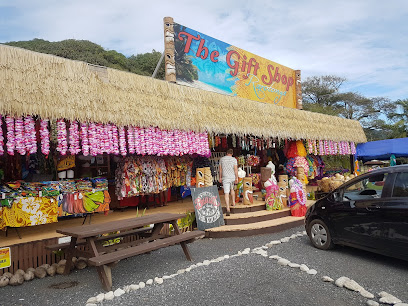
Muri Night Markets
Experience Rarotonga's vibrant food scene at Muri Night Markets, offering local cuisine, cultural experiences, and a lively atmosphere every Tuesday, Wednesday, Thursday and Sunday.
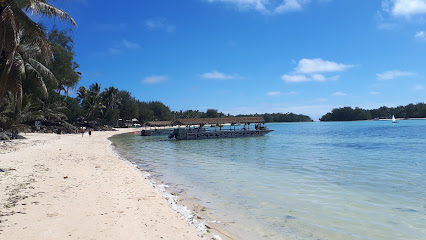
Captain Tamas Lagoon Cruizes
Explore Rarotonga's Muri Lagoon with Captain Tama's Cruizes: Snorkeling, BBQ, and island culture await! Unforgettable lagoon tours for all ages.
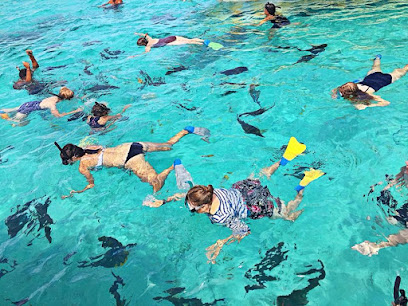
Koka Lagoon Cruises
Discover Rarotonga's Muri Lagoon with Koka Lagoon Cruises: snorkeling, culture, and island fun for an unforgettable Cook Islands experience.
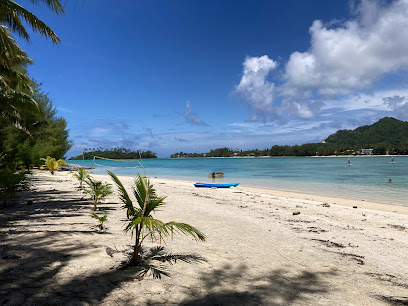
Te Vara Nui Village
Experience Cook Islands culture come to life at Te Vara Nui Village: immersive tours, captivating shows, and traditional cuisine in Muri Beach.
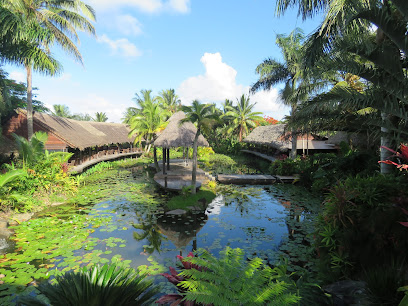
Maire Nui Gardens and Cafe
Explore Rarotonga's lush Maire Nui Gardens: a vibrant botanical haven with exotic plants, tranquil lily ponds, and delightful garden-to-table dining.
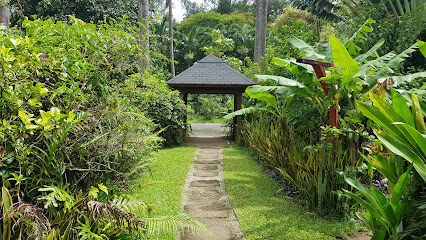
Raro Buggy Tours
Experience Rarotonga's wild side with a thrilling buggy tour through muddy tracks, historical sites, and lush plantations.
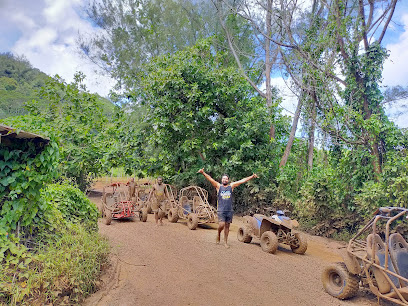
Little Polynesian Resort
Experience luxury and seclusion at Rarotonga's Little Polynesian Resort, an adults-only beachfront paradise in beautiful Titikaveka.

Snorkel Cook Islands
Discover Rarotonga's underwater paradise with guided snorkeling tours in Avaavaroa Passage. Swim with turtles in a vibrant, healthy ecosystem.

Rarotonga Turtle Tours
Swim with turtles in Rarotonga's crystal-clear waters! Guided snorkeling tours for an unforgettable marine adventure in Vaimaanga.
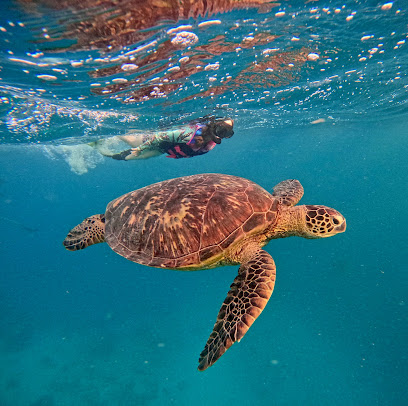
Te Ara Cook Islands Museum of Cultural Enterprise
Immerse yourself in Cook Islands culture and history at Te Ara Museum. Discover Polynesian heritage, local crafts, and captivating stories in Muri.
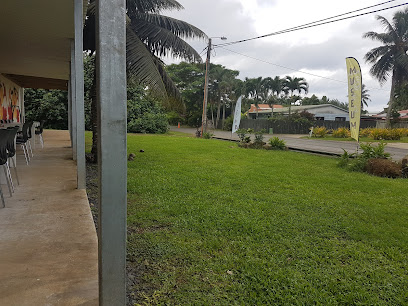
Te Rua Manga (The Needle)
Hike to Rarotonga's iconic Te Rua Manga (The Needle) for panoramic views and a thrilling trek through lush, legendary landscapes.
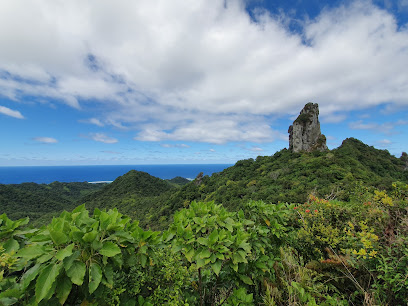
Wigmore's Waterfall
Discover Rarotonga's hidden gem: Wigmore's Waterfall, a serene escape into lush landscapes and refreshing natural pools in the heart of the Cook Islands.
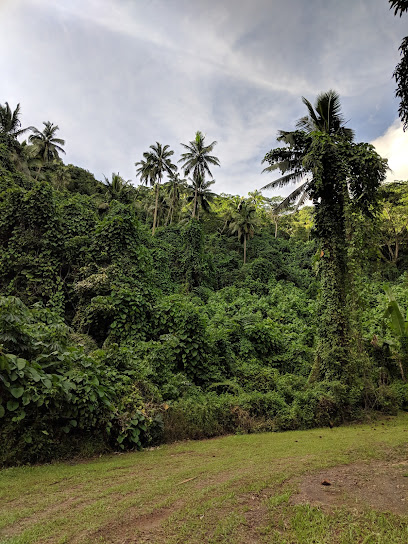
Muri Beach
Experience Rarotonga's best: Muri Beach offers watersports, island exploration, and beachfront dining in a stunning tropical setting.
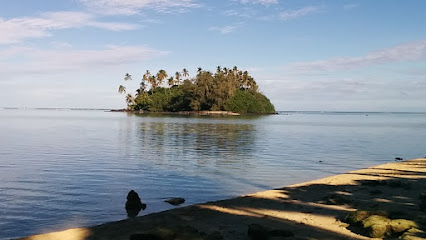
Motu Beachfront Art Villas
Experience Rarotonga's beauty at Motu Beachfront Art Villas: Adults-only luxury, Polynesian art, sustainable practices, and Titikaveka Lagoon.

Unmissable attractions to see
Punanga Nui Market
Experience the vibrant Punanga Nui Market in Rarotonga, a colorful hub of fresh produce, local crafts, and cultural delights that captures the essence of the Cook Islands.
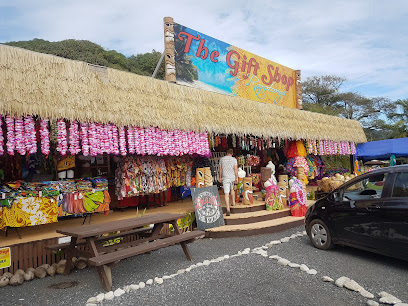
Captain Tamas Lagoon Cruizes
Explore the stunning Muri Beach with Captain Tamas Lagoon Cruises and experience an unforgettable lagoon adventure in Rarotonga.
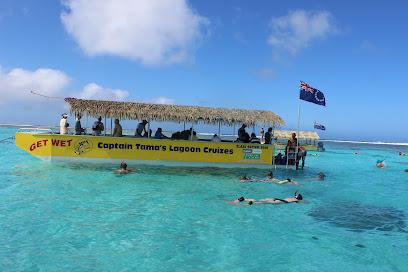
Rarotonga
Discover the enchanting beauty of Rarotonga, the largest island in the Cook Islands, where pristine beaches meet rich cultural experiences.
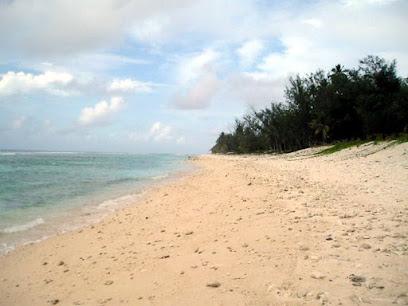
Maire Nui Gardens and Cafe
Discover Rarotonga's lush beauty at Maire Nui Gardens: a serene escape with vibrant flora, tranquil pathways, and delightful garden-to-table cuisine.
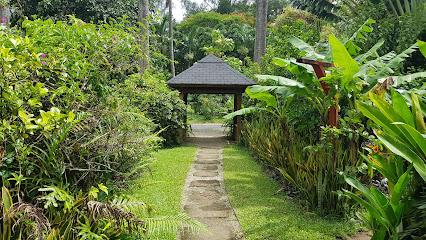
Shipwreck Hut Bar & Restaurant & Accomodation
Experience the vibrant atmosphere of Arorangi at Shipwreck Hut Bar & Restaurant, where delicious food meets live music and stunning views.
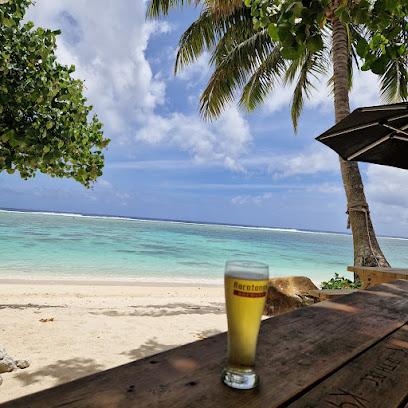
Te Ara Cook Islands Museum of Cultural Enterprise
Explore the rich cultural tapestry of the Cook Islands at Te Ara Museum, where history, art, and tradition come alive in a beautiful beachside setting.
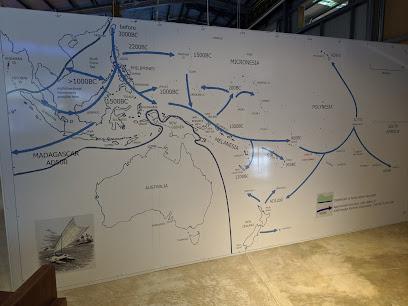
Ariki Adventures
Experience the thrill of adventure in the heart of the Cook Islands at Ariki Adventures, the ultimate destination for outdoor enthusiasts.
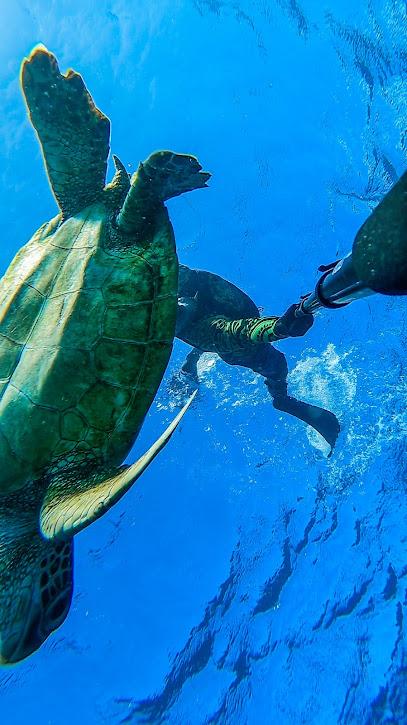
Te Rua Manga (The Needle)
Explore the breathtaking beauty of Te Rua Manga, an iconic natural landmark in Avarua, Cook Islands, perfect for adventure seekers and nature lovers.
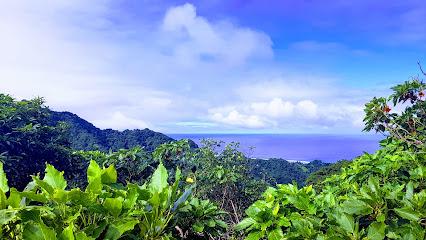
Te Rua Manga (The Needle)
Discover the breathtaking beauty and adventure at Te Rua Manga, Rarotonga's iconic landmark offering stunning views and a memorable hiking experience.
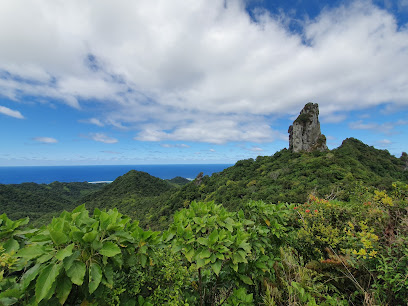
Muri Beach
Experience the best of Rarotonga at Muri Beach: stunning lagoon, water sports, cultural events, and island relaxation.
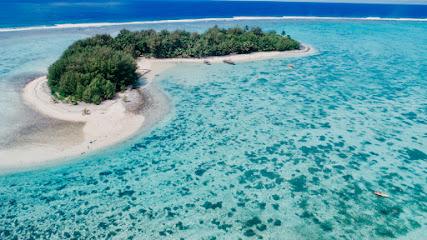
Black Rock
Experience the stunning beauty and rich cultural heritage of Black Rock in Avarua, a must-see destination for every traveler in the Cook Islands.
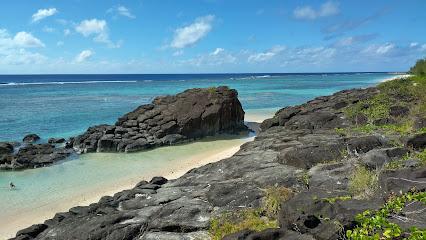
Highland Paradise
Experience the rich cultural heritage and exquisite local cuisine at Highland Paradise, the heart of Polynesian tradition in the Cook Islands.
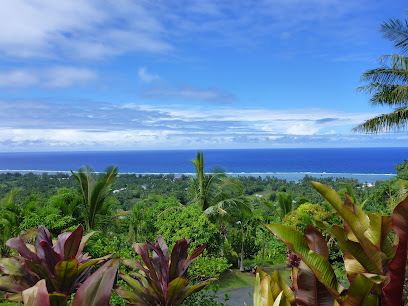
Cook Islands National Museum
Explore the Cook Islands National Museum, where the rich heritage and vibrant culture of the islands come to life through engaging exhibits and artifacts.
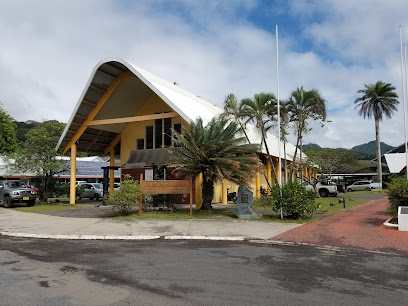
Game Fishing Rarotonga
Discover the thrill of game fishing in Rarotonga, where azure waters and expert guides await to create unforgettable fishing adventures.
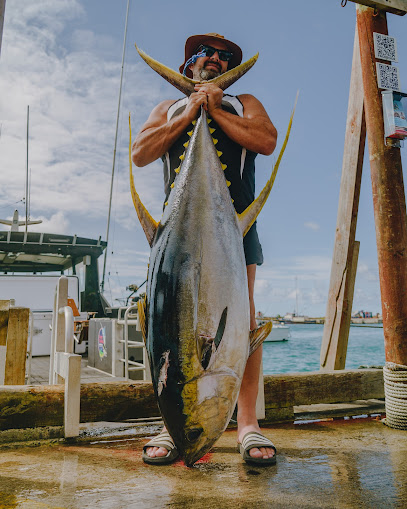
Nikao Beach
Experience the serene beauty of Nikao Beach in Rarotonga, a true tropical paradise with pristine sands and vibrant marine life.
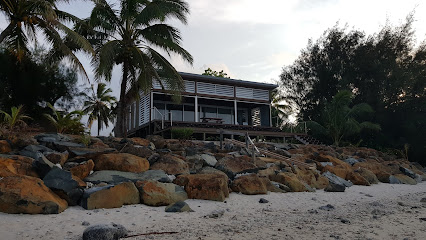
Essential places to dine
Trader Jacks
Discover culinary delights and vibrant nightlife at Trader Jacks in Avarua - where great food meets breathtaking ocean views.
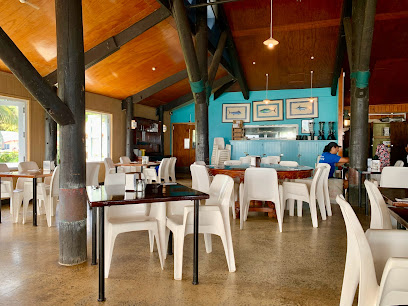
Charlie's Raro
Discover culinary delights at Charlie's Raro - where island flavors meet vibrant atmospheres in Takitumu District.
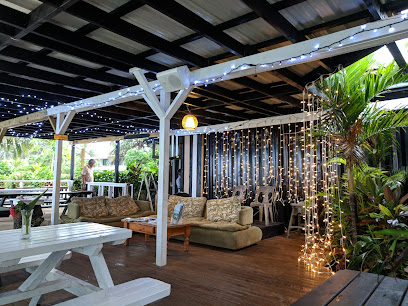
The Mooring Fish Cafe
Experience delectable fish and chips at The Mooring Fish Cafe in Ngatangiia District—where fresh seafood meets breathtaking views.
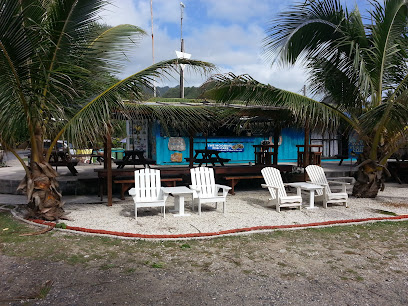
Vili's Burger Joint
Discover Vili's Burger Joint in Ngatangiia District - where delicious fast food meets local charm in a breathtaking setting.
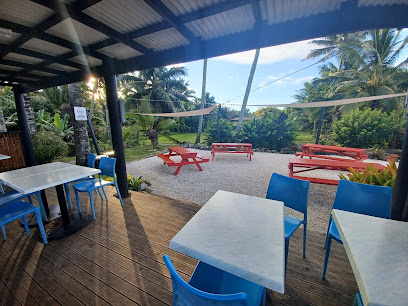
Tamarind House Restaurant & Ukulele Bar
Discover culinary delights and vibrant entertainment at Tamarind House Restaurant & Ukulele Bar in Avarua - an unforgettable taste of the Cook Islands.
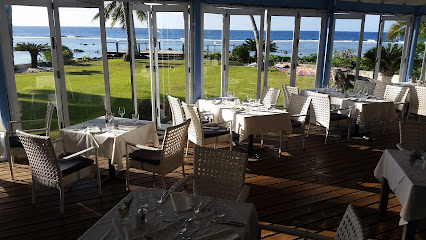
Vaima Restaurant and Bar
Discover culinary delights at Vaima Restaurant and Bar in Takitumu – where fresh ingredients meet stunning ocean views for an unforgettable dining experience.
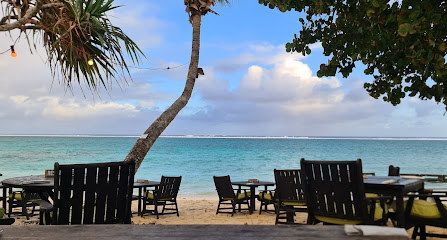
The Waterline Restaurant and Outrigger Beach Bar
Discover breathtaking views and mouthwatering local cuisine at The Waterline Restaurant and Outrigger Beach Bar in Rarotonga's beautiful Arorangi.
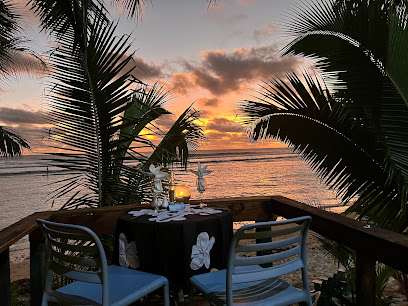
Rarotonga Sailing Club
Experience exquisite dining with breathtaking views at Rarotonga Sailing Club – where island flavors meet paradise.
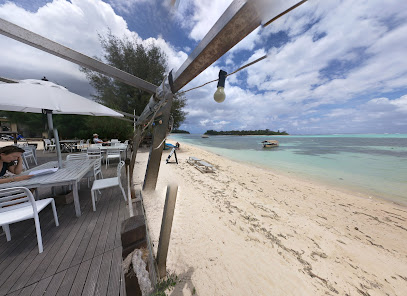
Antipodes rarotonga
Discover exquisite local cuisine at Antipodes Rarotonga in Avarua—where fresh ingredients meet stunning views.
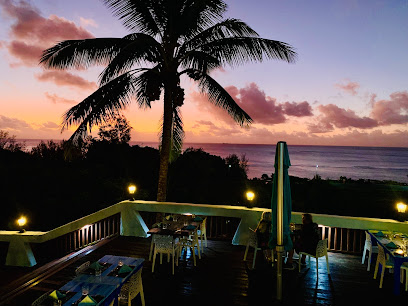
Shipwreck Hut Bar & Restaurant & Accomodation
Experience delicious grilled delights and vibrant live music at Shipwreck Hut Bar & Restaurant in beautiful Arorangi District.
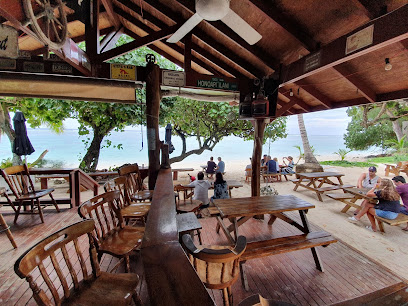
Spaghetti House Restaurant
Experience authentic Italian cuisine in the heart of Arorangi District at Spaghetti House Restaurant - where every meal feels like home.
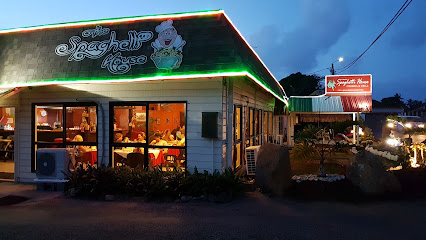
Flying Turtle Cafe
Discover delightful flavors at Flying Turtle Cafe in Rarotonga – a perfect spot for fresh food and stunning views.
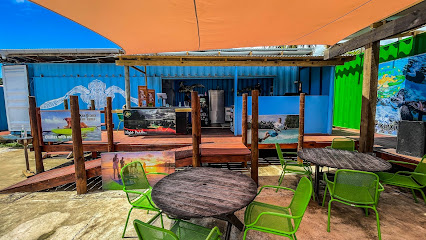
Kikau Hut
Experience authentic Pacific Island cuisine at Kikau Hut, where local flavors meet breathtaking ocean views in Rarotonga.
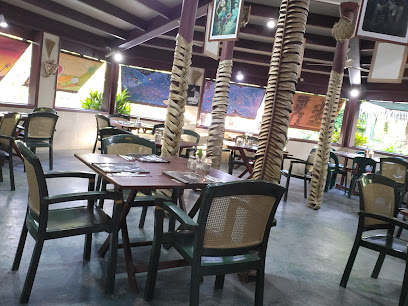
On the Beach Bar and Restaurant
Experience exquisite dining at On the Beach Bar and Restaurant in Arorangi District—where tropical flavors meet stunning ocean views.
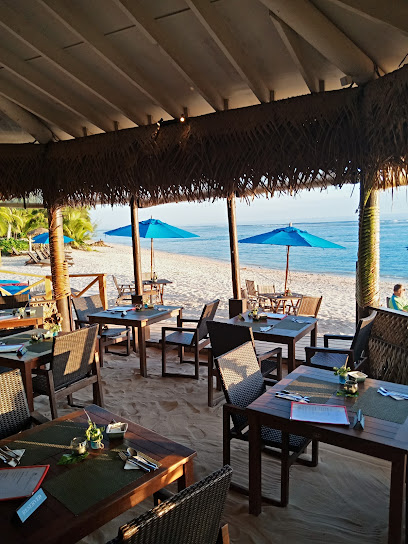
The Pacific Fish & Chip Shop
Discover the best fish and chips in Arorangi District at The Pacific Fish & Chip Shop - fresh flavors from the heart of the Pacific.
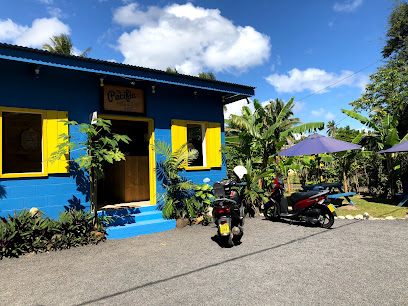
Markets, malls and hidden boutiques
Wigmore's Superstore
Discover local flavors and gourmet goods at Wigmore's Superstore in Takitumu District, your essential shopping stop in the Cook Islands.
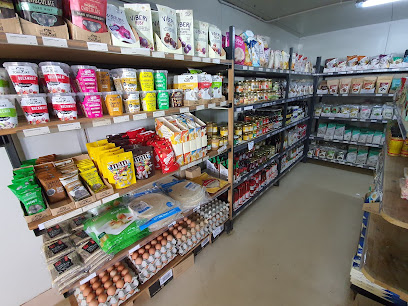
Ollie's Surf Gear
Discover the best surfwear and accessories at Ollie's Surf Gear in Avarua, where island vibes meet quality clothing.
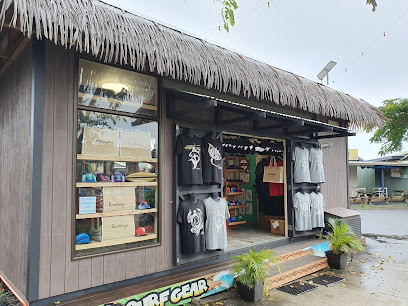
Island Craft Ltd
Explore the essence of the Cook Islands with unique handcrafted gifts at Island Craft Ltd, a treasure trove in Avarua.
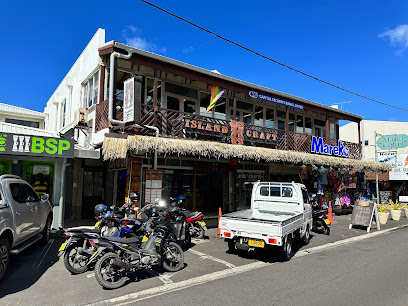
The T-Shirt Factory
Discover unique souvenirs and vibrant apparel at The T-Shirt Factory in Avarua, where the spirit of the Cook Islands comes to life.
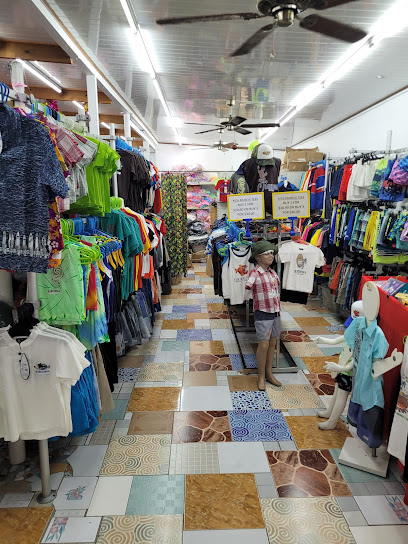
Cooks Fudge Factory/ Perfumes of Rarotonga
Explore the irresistible blend of handmade fudge, unique perfumes, and artisanal candles at Cooks Fudge Factory in Avarua, Rarotonga.
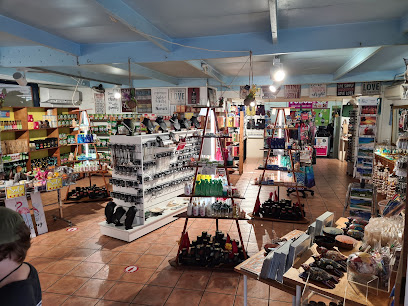
Vonnias Warehouse
Explore Vonnias Warehouse in Avarua for a unique shopping experience filled with local culture, handcrafted goods, and modern retail treasures.
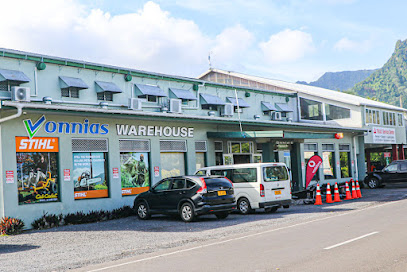
Tuki's Pareu
Explore authentic Cook Islands fashion at Tuki's Pareu, a vibrant clothing store in Avarua offering unique apparel and local culture.
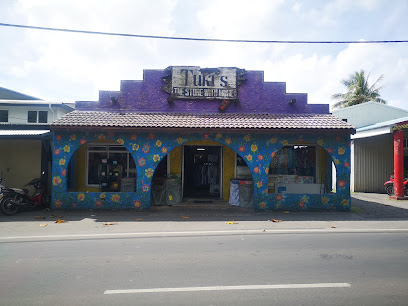
TEM Store and Takeaways
Experience local culture and cuisine at TEM Store and Takeaways in Ngatangiia District, your one-stop shop for groceries and delicious takeout.
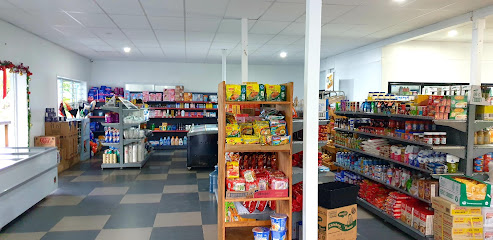
Kano Store
Discover the flavors of the Cook Islands at Kano Store, your cozy cafe in the heart of Takitumu District.
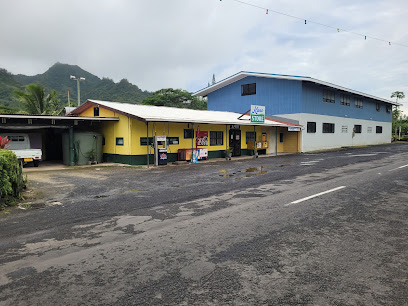
Tivaevae Collectables Cultural Gift Shop
Explore Tivaevae Collectables in Avarua for unique cultural gifts and locally crafted treasures that embody the spirit of the Cook Islands.
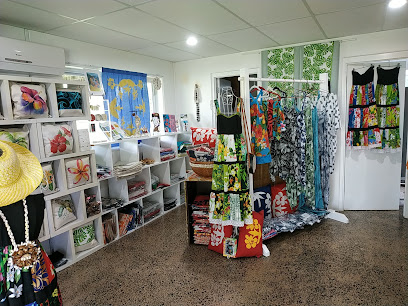
Mareko Island Creations
Discover the essence of the Cook Islands at Mareko Island Creations, where local artistry meets unique souvenirs in Avarua.
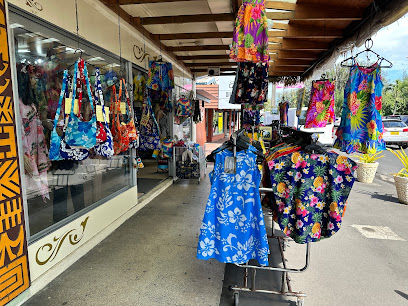
SPCA OP SHOP PUNANGA NUI MARKETS
Explore the SPCA Op Shop at Punanga Nui Markets for unique clothing treasures while supporting local animal welfare in the Cook Islands.
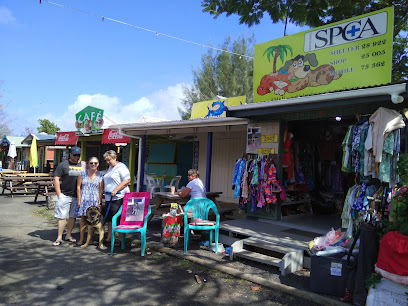
The Gift Shop
Explore The Gift Shop in Avarua for authentic souvenirs and vibrant local crafts that embody the spirit of the Cook Islands.
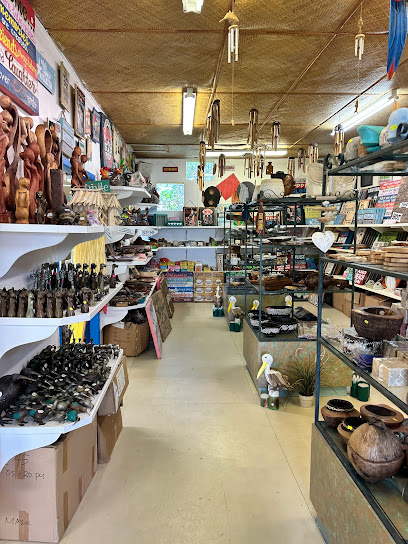
Rito Cook Islands
Experience the essence of beauty and wellness at Rito Cook Islands in the serene Takitumu District, where tropical charm meets natural healing.
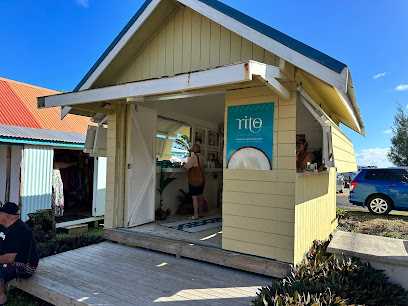
WOO AKAPUAO
Discover the essential convenience store in Takitumu District, where great prices and friendly service meet for an unforgettable island experience.
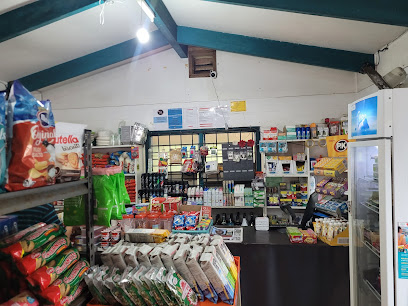
Essential bars & hidden hideouts
Trader Jacks
Discover the vibrant culinary landscape of Trader Jacks in Avarua, where local flavors meet an energetic nightlife in the Cook Islands.
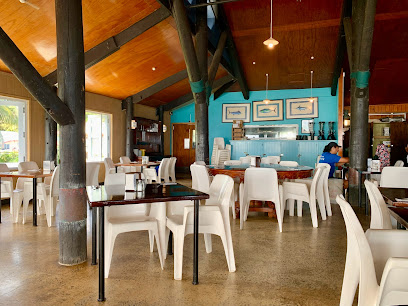
Charlie's Raro
Discover the vibrant flavors and tropical vibes of Charlie's Raro, a premier bar and restaurant in the picturesque Takitumu District of the Cook Islands.
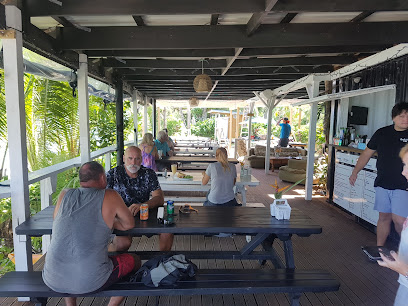
Vaima Restaurant and Bar
Savor exquisite local flavors and stunning ocean views at Vaima Restaurant and Bar in the heart of Takitumu District.
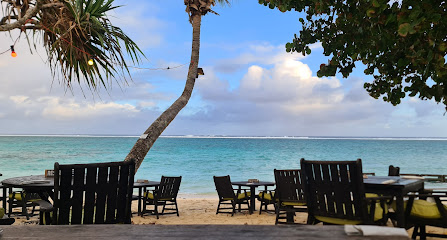
21.3 Vaiana's Bar & Bistro
Vaiana's Bar & Bistro in Avarua offers a delightful fusion of great food, refreshing drinks, and stunning ocean views for a memorable dining experience.
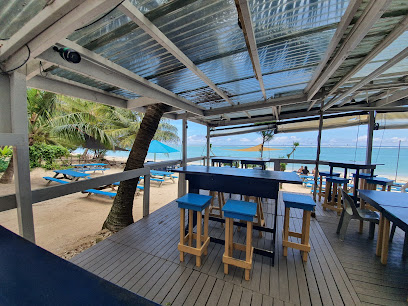
Shipwreck Hut Bar & Restaurant & Accomodation
Experience the vibrant culture and flavors of Rarotonga at Shipwreck Hut Bar & Restaurant, a must-visit grill and live music venue in Arorangi District.
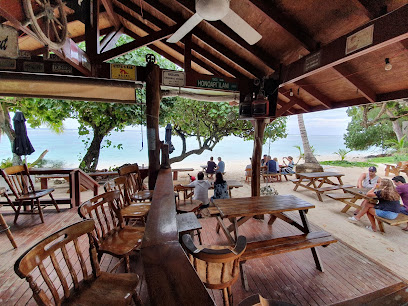
Wilsons Bar & Restaurant
Discover the charm of Wilsons Bar & Restaurant, where breathtaking views meet delightful cuisine in Arorangi District.
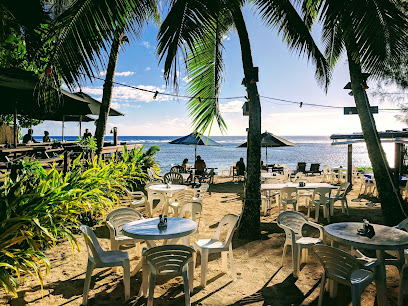
Rehab
Dive into the vibrant nightlife of Rehab in Avarua, where dancing, cocktails, and unforgettable memories await every visitor.
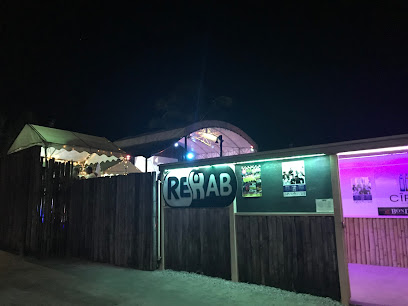
Tumunu Bar and Restaurant
Discover the vibrant atmosphere of Tumunu Bar and Restaurant in Rarotonga, where delightful cuisine meets tropical paradise in the heart of the Cook Islands.
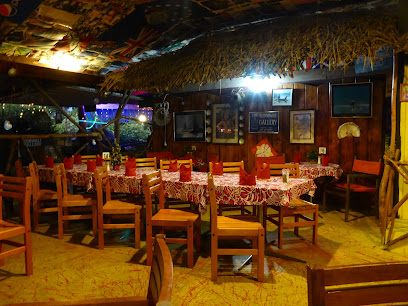
Laguna on Muri Restaurant and Bar
Discover an exquisite dining experience at Laguna on Muri, where delectable steaks meet breathtaking views in the heart of the Cook Islands.
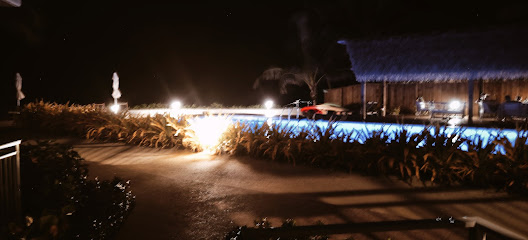
Takitumu Tapas
Discover the vibrant culinary scene at Takitumu Tapas, where local flavors and exquisite tapas create an unforgettable dining experience.
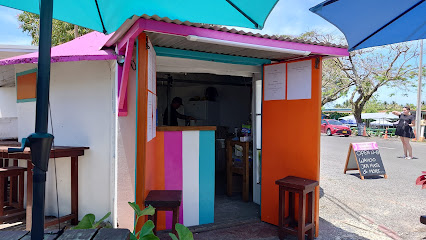
Mai’i Cafe & Bar
Experience the vibrant flavors and tropical ambiance at Mai’i Cafe & Bar in Takitumu District, a perfect spot for relaxation and great food.
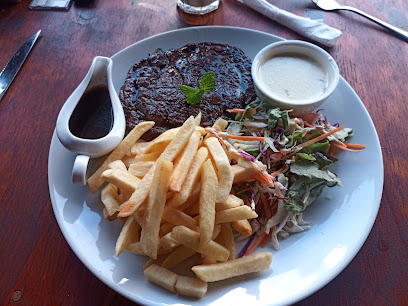
Hidden Spirit Cafe
Experience local flavors and a tranquil atmosphere at Hidden Spirit Cafe in the heart of the beautiful Takitumu District.
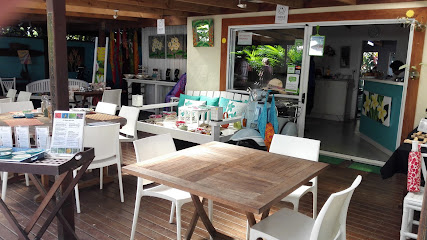
Hula Bar
Discover the lively energy of Hula Bar in Rarotonga, where refreshing cocktails and vibrant music create unforgettable nights in paradise.
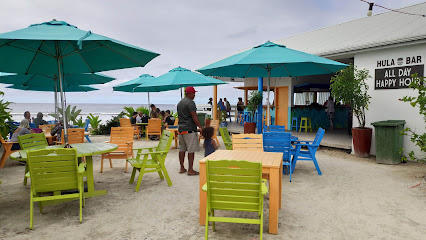
Roadhouse Bar & Restaurant
Discover the lively Roadhouse Bar & Restaurant in Arorangi District, offering delicious meals, affordable drinks, and unforgettable karaoke nights.
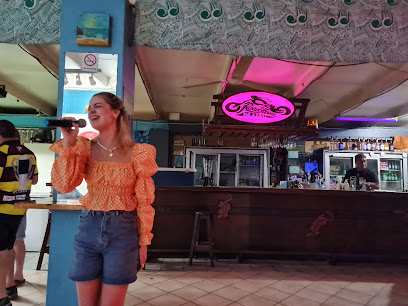
Local Phrases
-
- HelloKia Orana
[key-ah oh-rah-nah] - GoodbyeAere ra
[eye-ray rah] - YesE
[eh] - NoKare
[kah-reh] - Please/You're welcomeMeitaki
[may-tah-kee] - Thank youMeitaki
[may-tah-kee] - Excuse me/SorryTangiia
[tang-ee-ah] - How are you?Pehea koe?
[peh-heh-ah koh-eh] - Fine. And you?Maitai. E koe?
[my-tie. eh koh-eh] - Do you speak English?E koe e korero i te reo Ingarangi?
[eh koh-eh eh koh-reh-roh ee teh reh-oh eeng-ah-rahng-ee] - I don't understandKare au e akakite
[kah-reh ow eh ah-kah-kee-teh]
- HelloKia Orana
-
- I'd like to see the menu, pleaseKa inangaro au kia kite i te mena, meitaki
[kah ee-nah-ngah-roh ow kee-ah kee-teh ee teh meh-nah, may-tah-kee] - I don't eat meatKare au e kai vai
[kah-reh ow eh kai vah-ee] - Cheers!Manuia!
[mah-noo-ee-ah] - I would like to pay, pleaseKa inangaro au kia utu, meitaki
[kah ee-nah-ngah-roh ow kee-ah oo-too, may-tah-kee]
- I'd like to see the menu, pleaseKa inangaro au kia kite i te mena, meitaki
-
- Help!Aroa!
[ah-roh-ah] - Go away!Taka atu!
[tah-kah ah-too] - Call the Police!Taki mai te kara i te 'Akarani!
[tah-kee my teh kah-rah ee teh ah-kah-rah-nee] - Call a doctor!Taki mai te taote!
[tah-kee my teh tah-oh-teh] - I'm lostKua riro au
[koo-ah ree-roh ow] - I'm illKua mama au
[koo-ah mah-mah ow]
- Help!Aroa!
-
- I'd like to buy...Ka inangaro au kia oti...
[kah ee-nah-ngah-roh ow kee-ah oh-tee] - I'm just lookingKei te titiro au
[keh-ee teh tee-tee-roh ow] - How much is it?E hia te moni?
[eh hee-ah teh moh-nee] - That's too expensiveE tei te moni
[eh teh-ee teh moh-nee] - Can you lower the price?E taea e koe te pupu i te moni?
[eh tah-eh-ah eh koh-eh teh poo-poo ee teh moh-nee]
- I'd like to buy...Ka inangaro au kia oti...
-
- What time is it?Ko te aha te wa?
[koh teh ah-hah teh wah] - It's one o'clockKo te tahi te ora
[koh teh tah-hee teh oh-rah] - Half past (10)Tekau ma toru
[teh-kow mah toh-roo] - MorningPōpō
[poh-poh] - AfternoonArepō
[ah-reh-poh] - EveningAiai
[eye-eye] - YesterdayAroa
[ah-roh-ah] - TodayĀnei
[ah-neh-ee] - TomorrowĀpōpō
[ah-poh-poh] - 1Tahi
[tah-hee] - 2Rua
[roo-ah] - 3Toru
[toh-roo] - 4Whā
[fah] - 5Rima
[ree-mah] - 6Ono
[oh-noh] - 7Whitu
[fee-too] - 8Waru
[wah-roo] - 9Iwa
[ee-wah] - 10Tekau
[teh-kow]
- What time is it?Ko te aha te wa?
-
- Where's a/the...?Kei hea te...?
[keh-ee heh-ah teh] - What's the address?Ko te aha te tuiraa?
[koh teh ah-hah teh too-ee-rah] - Can you show me (on the map)?E taea e koe te whakaatu mai i ahau (i te mahere)?
[eh tah-eh-ah eh koh-eh teh fah-kah-ah-too my ee ah-how (ee teh mah-heh-reh)] - When's the next (bus)?Āhea te tereina (moto)?
[ah-heh-ah teh teh-reh-ee-nah (moh-toh)] - A ticket (to ....)He paiti (ki ....)
[heh pie-tee (kee)]
- Where's a/the...?Kei hea te...?
History of Takitumu
-
The history of Takitumu in the Cook Islands begins with the arrival of Polynesian settlers. It is believed that these early navigators, skilled in the art of ocean voyaging, arrived in the region around 800 AD. They brought with them rich traditions, advanced knowledge of astronomy, and sophisticated navigation techniques. These early settlers established a thriving community, relying on the abundant natural resources of the islands and cultivating crops such as taro and breadfruit.
-
According to local legend, Takitumu was founded by Pa, a renowned Polynesian chief and navigator. Pa is celebrated for his wisdom, leadership, and navigational prowess. The district of Takitumu is named after Pa's canoe, which was called 'Takitumu'. This legendary figure is said to have led his people on an epic voyage across the Pacific Ocean, eventually settling in the Cook Islands where he established the foundations of the Takitumu community.
-
The arrival of Christian missionaries in the 19th century marked a significant turning point in the history of Takitumu. In 1823, the London Missionary Society, led by Reverend John Williams, arrived in the Cook Islands. The missionaries introduced Christianity and Western education, which dramatically altered the social and cultural landscape of Takitumu. Many traditional beliefs and practices were replaced by Christian doctrines, and the influence of the missionaries is still evident in the region's churches and religious practices today.
-
In the late 19th century, the Cook Islands, including Takitumu, came under British influence. In 1888, the islands were declared a British protectorate, which further integrated Takitumu into the global colonial framework. This period saw the introduction of British administrative practices and the imposition of colonial laws. The local governance structures were altered, and Takitumu's traditional leaders had to navigate the complexities of colonial rule while striving to preserve their cultural heritage.
-
The mid-20th century was a period of significant political change for Takitumu and the Cook Islands as a whole. In 1965, the Cook Islands became a self-governing territory in free association with New Zealand. This newfound political status allowed the people of Takitumu to exercise greater autonomy over their affairs. Today, Takitumu is known for its vibrant cultural heritage, which is celebrated through traditional dance, music, and festivals. The community continues to honor its historical roots while embracing the opportunities of the modern era.
Takitumu Essentials
-
Takitumu is located on the island of Rarotonga in the Cook Islands. The primary entry point is Rarotonga International Airport (RAR), which receives flights from various international destinations including New Zealand, Australia, and the United States. From the airport, you can reach Takitumu by taxi, rental car, or pre-arranged hotel transfers. The drive from the airport to Takitumu typically takes around 15-20 minutes.
-
Getting around Takitumu is convenient and straightforward. Local buses circle the island on two routes: a clockwise and an anti-clockwise route, both of which pass through Takitumu. Taxis are also readily available, and many visitors opt to rent scooters or bicycles for greater flexibility. Rental cars are another option, but note that driving is on the left side of the road.
-
The official currency in the Cook Islands is the New Zealand Dollar (NZD). Credit cards are widely accepted in hotels, restaurants, and larger shops, but it is advisable to carry some cash for smaller establishments and markets. ATMs are available, but it's good practice to withdraw enough cash upon arrival to cover expenses, especially if you plan to explore more remote areas.
-
Takitumu is generally safe for tourists, with low levels of crime. However, it is wise to take standard precautions: avoid leaving valuables unattended, especially on the beach, and be cautious when walking alone at night. There are no specific high-crime areas targeting tourists, but staying vigilant and aware of your surroundings is always advisable.
-
In case of an emergency, dial 999 for immediate assistance. The local police station and medical facilities are available in Takitumu, with the main hospital located in Avarua, about a 15-minute drive away. It is recommended to have travel insurance that covers medical emergencies. For minor health issues, there are pharmacies where you can purchase over-the-counter medications.
-
Fashion: Do dress modestly, especially when visiting churches or attending local events. Beachwear is acceptable at the beach but not in public places. Religion: Do respect local customs and traditions. Remove your hat and sunglasses when entering a church. Public Transport: Do be respectful and greet the bus driver. Don’t eat or drink on public transport. Greetings: Do greet people with a smile and a friendly 'Kia Orana.' Eating & Drinking: Do try local dishes and accept food offerings graciously. Don’t refuse hospitality, as it is considered impolite.
-
To experience Takitumu like a local, visit the local markets where you can buy fresh produce and traditional Cook Islands crafts. Engage with locals, as they are often friendly and willing to share stories about the island's history and culture. Don’t miss the Muri Night Market for a taste of local cuisine and a chance to mingle with residents. Attend a cultural performance to witness traditional Cook Islands dance and music. For a unique experience, take a lagoon cruise to explore nearby motus (small islands) and enjoy snorkeling in the crystal-clear waters.
Trending Landmark in Takitumu
-
Punanga Nui Market
-
Muri Night Markets
-
Captain Tamas Lagoon Cruizes
-
Koka Lagoon Cruises
-
Te Vara Nui Village
-
Maire Nui Gardens and Cafe
-
Raro Buggy Tours
-
Little Polynesian Resort
-
Snorkel Cook Islands
-
Rarotonga Turtle Tours
-
Te Ara Cook Islands Museum of Cultural Enterprise
-
Te Rua Manga (The Needle)
-
Wigmore's Waterfall
-
Muri Beach
-
Motu Beachfront Art Villas
Nearby Cities to Takitumu
-
Things To Do in Ngatangiia
-
Things To Do in Muri
-
Things To Do in Matavera
-
Things To Do in Avatiu
-
Things To Do in Arorangi
-
Things To Do in Avarua
-
Things To Do in Nikao
-
Things To Do in Maupiti
-
Things To Do in Bora Bora
-
Things To Do in Raiatea
-
Things To Do in Huahine
-
Things To Do in Moorea
-
Things To Do in Papeete
-
Things To Do in Tahiti
-
Things To Do in Tetiaroa





